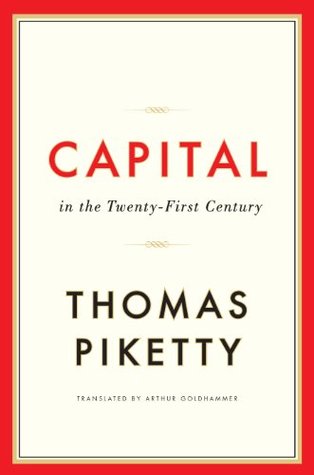The case of an elasticity of substitution exactly equal to one corresponds to the so-called Cobb-Douglas production function, named for the economists Charles Cobb and Paul Douglas, who first proposed it in 1928. With a Cobb-Douglas production function, no matter what happens, and in particular no matter what quantities of capital and labor are available, the capital share of income is always equal to the fixed coefficient α, which can be taken as a purely technological parameter.17 For example, if α = 30 percent, then no matter what the capital/income ratio is, income from capital will
...more
Welcome back. Just a moment while we sign you in to your Goodreads account.


